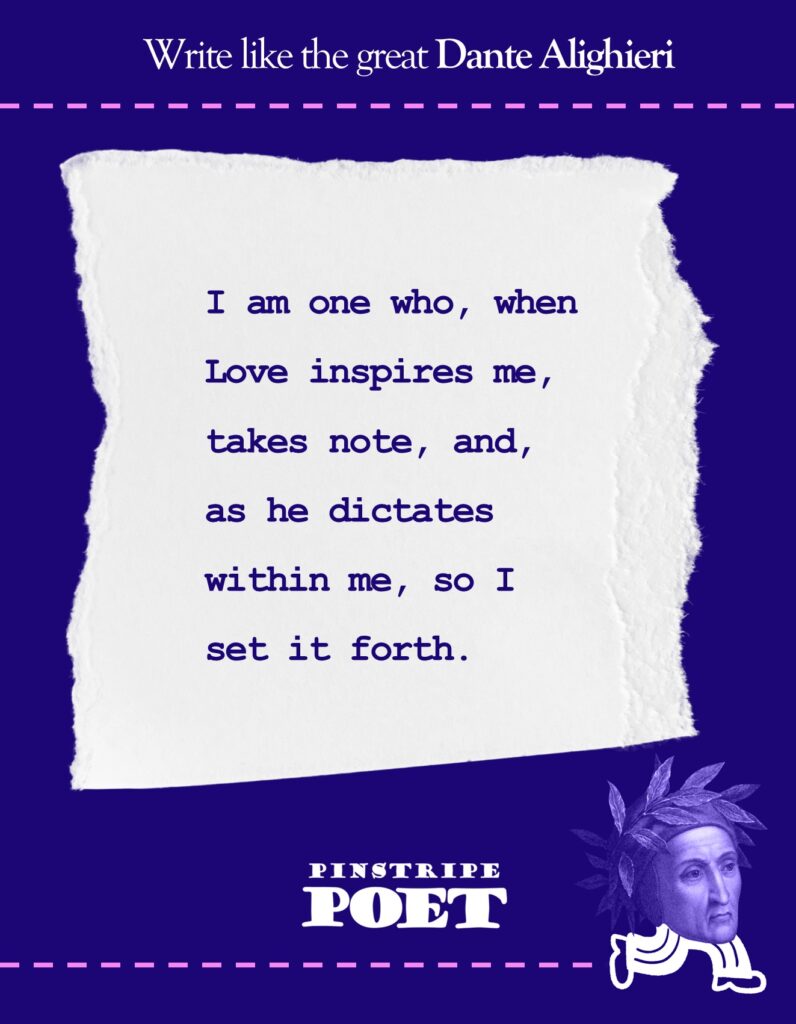
Has anyone ever tried to convince you to write like Dante?
Probably not, because who writes poetry anymore?*
Modern pen-pushers are busy with blogs, emails and social posts.
But we should remember the medieval poet Dante Alighieri. (And not just because it’s Valentine’s Day and he was drippingly romantic.)
We should remember him for his push to reach people — for writing to the broadest possible audience.
In a sense, he opened the doors of heaven to common readers.
You see, Dante had a theory. (It’s all spelt out in an essay titled ‘On Eloquence in the Vernacular’.) He argued that ordinary language could be used for extraordinary art.
Poetry didn’t need to be composed in Latin. The dialects of Italy had a music all of their own.
And that meant artists could — and should — address the living, breathing people of Florence, instead of the ghosts of the Roman Empire.
And sure, Dante made that argument in Latin. (Ironic…) But his masterpiece was in ‘vulgar’ language.
When he wrote The Divine Comedy, he used his native Tuscan dialect.
And generations of adoring readers agree: the language was up to the task. Hell, purgatory and heaven could be spoken of in the common tongue.
So the next time you’re dealing with a difficult stakeholder… who’d prefer if you used fancier, Latinate words…
… think of Dante.
He championed his native dialect so skilfully that it effectively became the language of a whole country.
Because, in a final flourish, I’ll reveal that Dante and The Divine Comedy are significant chapters in the story of how Italian became Italian. Or as some know it, la bella lingua.
The beautiful language.
*I do, but that’s beside the point.
Aidan Clifford writes for Pinstripe Poets – artists who love their day jobs. This post is part of a series called ‘Write like the Greats’. See the rest here.


